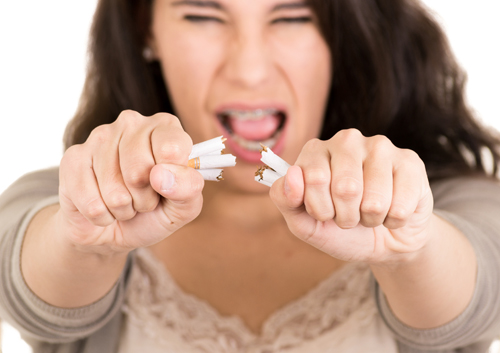Chipped Your Tooth? Now What?
April 11th, 2024

Accidents happen. Next time you’ll wear your mouthguard when you skateboard, never use your teeth to open anything, and carefully step away from your grandmother’s hard candy dish. But what to do now for your chipped tooth?
First of all, call Daisy Mountain Dentistry. Drs. Peter Vogel, Vijal Vadecha and our team can offer tips on dealing with any pain and how to avoid injuring your tooth further. Make an appointment to see us as soon as possible, where one of the following options might be the best treatment for you:
- Bonding
If the chip is small, you might be a good candidate for bonding. A tooth-colored resin is applied to the damaged area with adhesive, molded to shape, and then hardened with a curing light. It is then polished and, if necessary, further shaped to match your surrounding teeth.
- Porcelain Veneer
A veneer is a thin shell of porcelain individually molded for your tooth. If the chip is too large for bonding, or if you would like a more translucent finish, a veneer might be appropriate. During your first appointment, some of the tooth structure will be gently removed to accommodate the size of the veneer. A mold will be taken and sent to a lab for the creation of the veneer, which will be bonded to your tooth on a later visit. Whether a veneer will be successful depends on several variables, such as the condition of the tooth and enamel, your bite, and whether you grind your teeth. We will take all these factors into consideration in discussing possible treatments.
- Crown
A large chip or pain when eating or drinking might mean that you need a crown. This “cap” will protect your tooth from the pressures of chewing as well as restoring its appearance. On your first visit, some of the tooth structure will probably be removed to make room for the crown, impressions will be taken for the dental lab to make a permanent crown, and a temporary model will be fitted to your tooth. In a following visit the permanent crown will be adhered to your tooth.
If the crack has extended to the pulp of the tooth, you might need a root canal. If this is necessary, we will discuss the procedure during our exam.
No matter the size of the chip, it is important to contact our Anthem office immediately to help avoid infection and prevent further damage. If your tooth is broken below the gumline or otherwise seriously compromised, more intensive care will be necessary. But when a minor accident happens, prompt treatment can quickly restore your smile to health.
What to Expect if You Haven’t Been to the Dentist in Forever
April 4th, 2024

It’s easy to miss a dental appointment. Life and duties intervene, and suddenly you have to push your appointment back once, then again, or forget about it.
We get that. These days, we all have a lot going on. But what we don’t want is for a lengthy absence to make you anxious about returning. It doesn’t matter how long it’s been, we always love to see you! So let’s take a moment to explain what you can expect when you pay us a visit.
Your appointment will last roughly 60 to 90 minutes, so keep that in mind when you schedule it and plan accordingly. Drs. Peter Vogel, Vijal Vadecha and our team want you to feel comfortable.
One of the first things we will ask is the reason for your visit. You’ll have the opportunity to let us know about any concerns or questions you may have. No question is too small, so ask away!
Next, we will go over your medical and dental history to make updates to your file as necessary. This will usually be followed by X-rays to give us a better idea of what is currently happening with your teeth. We will finish with a screening for oral cancer and periodontal disease. If you haven’t visited us in a while, we want to make sure nothing serious is going on.
After that, you will undergo a cleaning with one of our hygienists. Your teeth will be cleaned and checked for such things as broken fillings, cracked teeth, or active decay. Finally, Drs. Peter Vogel, Vijal Vadecha will come by for a final look and a rundown of your dental needs.
Then you’re ready to go! On your way out, you’ll discuss options for scheduling your next appointment, insurance coverage, and payment plans if applicable. You will also receive a goodie bag with a new toothbrush, floss, and toothpaste to get you started (and motivated) on the path to great dental health!
We always want our patients’ experience to be as comfortable and as easy as possible. From the moment you pick up the phone to make your appointment, our team is here to make sure we always meet your needs.
No matter how long it’s been since your last visit, we hope you’ll give us a call to make your next appointment at our Anthem office.
The Effects of Sleep Apnea on Dental Health
March 28th, 2024

Sleep apnea is an increasingly common medical condition, and one that can have a truly devastating effect on the waking life of the sufferer. Those who suffer from the disorder may find that they suffer any or all of the following side effects:
- Saliva has several important jobs, and one of them is to protect and heal your tongue, your gums, and the inside of your mouth. Snoring and sleep apnea dry out your mouth, meaning there isn’t enough time for your saliva to do all this vital work.
- Over an extended period of sleep apnea, it’s likely that the sockets of your teeth will begin to dry out overnight as a result of your gasping for air and snoring between breaths. If this happens too frequently over a long a period of time, it can start to loosen your teeth.
- Those with sleep apnea often also practice bruxism, which is the habit of clenching and grinding your teeth together as you sleep. This can lead to all manner of problems, including TMJ disorder, damage to the enamel, headaches, and toothaches.
- For obvious reasons, sleep apnea does not lead to a particularly good night’s sleep. This means that sufferers are often tired and irritable, and suffer from the many other ill effects of sleep deprivation.
- While it is unclear whether the reasons behind this are correlative or causative, it has been suggested there are links between sleep apnea and cardiac arrests, depressive disorders, Type Two diabetes, cancerous tumors, “silent” strokes, and various complications of pregnancy.
While sleep apnea can be a troubling condition, Drs. Peter Vogel, Vijal Vadecha and our team at Daisy Mountain Dentistry will tell you it is eminently treatable. There are a number of ways to combat it, ranging from simple sleep hygiene to use of a CPAP machine. Of course, if it is possible for you to reduce your weight a little in a safe and healthy way, some have found that is also helpful in combating the problem. Sleep apnea is very easy to treat, once it has been correctly identified.
If you think you may be suffering from sleep apnea, or if you would like to know more about the condition, please give us a call at our convenient Anthem office to schedule an appointment with Drs. Peter Vogel, Vijal Vadecha.
How Smoking Increases the Risk of Oral Cancer
March 21st, 2024

Cigarette smoke contains more than 6,000 chemicals, and at least 200 of those chemicals are known to be harmful to your health. When smoke is inhaled, moist oral tissues are saturated with excessive amounts of carbon monoxide, hydrogen cyanide, and a host of other known carcinogens. Most oral cancers originate in abnormal squamous cell activity, which are cells found on the lips, inside the mouth, and in the throat.
How Oral Cancer Begins
Cells exposed to consistently high levels of cigarette smoke may eventually suffer abnormal mutations within their DNA. Since deoxyribonucleic acid (DNA) is responsible for providing cells with instructions about growth, reproduction, and death, these instructions become distorted, which causes the cells to reproduce uncontrollably.
Essentially, that is what cancer is: rapid, unchecked growth of genetically mutated cells that encourages the development of malignant tumors. Unfortunately, the chemicals in cigarette smoke are strongly associated with oral cancer.
Signs of Oral Cancer
Early-stage oral cancer is often asymptomatic, which means symptoms appear only after the cancer intensifies and spreads. Possible signs of oral cancer include:
- Ulcers inside the mouth or on the lips that do not heal
- White or dark red patches inside the mouth
- Lumps inside or around the mouth (a lump could appear on your neck)
- Bleeding, numbness, and soreness in the mouth
- Chronic halitosis
- Loose teeth in the absence of tooth decay
Diagnosis and Treatment of Oral Cancer
Squamous cell oral cancer is the most common type diagnosed in smokers. Drs. Peter Vogel, Vijal Vadecha and our staff often discover squamous cell carcinoma lesions during dental examinations or cancer screenings. Depending on the stage of the oral cancer, treatment may begin with a biopsy or an exfoliative cytology procedure that involves collecting cells from the oral cavity using a scraper.
According to the Oral Cancer Foundation, oral cancer patients may need surgery, radiation therapy, a combination of surgery and radiation therapy, or chemotherapy to eradicate oral cancer.
Smoking, Cancer, and Tooth Decay
Not only is smoking the number-one cause of cancer but it is also detrimental to the overall health of your teeth and gums. Yellow teeth, bad breath, dry mouth, and expedited tooth decay are all caused by smoking, not to mention the damage smoke does to the heart, lungs, and kidneys.
In other words, don’t smoke!


